Skroutz Buyers Protection
Αφηγήσεις για τη δεκαετία του 1940, Από το λόγο του κατοχικού κράτους στη μετανεωτερική ιστοριογραφίαCode: 435630
- Authors: Λουκιανός Χασιώτης, Ηλίας Γ. Σκουλίδας, Γιώργος Ανδρίτσος, Βασίλης Κ. Δαλκαβούκης, Βαγγέλης Τζούκας, Κατερίνα Θ. Τσέκου, Βασίλης Ριτζαλέος, Γιώργος Νιάρχος, Κώστας Τσίβος, Ελένη Πασχαλούδη, Ιωάννης Φίλανδρος, Βασιλική Λάζου, Παναγιώτης Π. Σπυρόπουλος, Πέτρος Παπαπολυβίου, Αντώνης Κλάψης, Μενέλαος Χαραλαμπίδης, Αριάδνη Αντωνιάδου, Αργύρης Μαμαρέλης, Στέφανος Κατσίκας, Peter Siani - Davies, Χρύσα Γιαννοπούλου, Θοδωρής Κούρος
- Publisher: Epikentro
- Μορφή: Soft Cover
- Έτος έκδοσης: 2012
- Αριθμός σελίδων: 434
- Κωδικός ISBN-13: 9789604582891
- Διαστάσεις: 24×17
Similar products
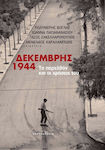
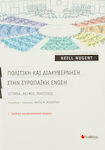
Political Books
Πολιτική και διακυβέρνηση στην Ευρωπαϊκή Ένωση, Ιστορία, θεσμοί, πολιτικές
from 20,50 €Added
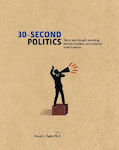
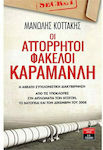 Top rated
Top ratedPolitical Books
Οι Απόρρητοι Φάκελοι Καραμανλή, The Unseen Shocking Governance
Ad from Xryso FteroAdded Top rated
Top rated
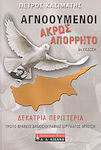
Political Books
Αγνοούμενοι: Άκρως απόρρητο, Δεκατρία περιστέρια: Οι τελευταίοι επιζώντες αγνοούμενοι της Κύπρου: Οι μυστικές αποστολές σωτηρίας τους
Ad from Xryso FteroAdded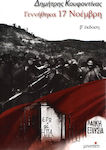
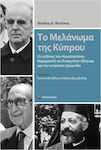
 Top rated
Top rated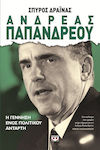
All shops
Prices are calculated for:Malta, Other Payment Options
- 18,20 €
- 16,90 €
- 18,63 €
- 19,40 €
- 18,20 €
- 24,58 €
- 22,10 €
Description
The process of narration is structured, as Gerard Genette has shown, on the basis of the fundamental distinction between the "time of history", that is, the natural succession of events, and the "time of narration", which is perceived as "the sequence of linguistic signs that represent these events".
The crucial point for understanding narration as a process is the decryption of the concept of "discourse". "Discourse" does not simply mean the formulation of speech, but also a "body of knowledge" and additionally a "system of communication strategies" with which the agents of this speech exercise power. However, based on this, "discourse" loses its "objectivity", that is, it loses the ability to describe reality directly, as it is formulated "subjectively" - a term that should be taken literally here - as the speech of the social subjects who utter it.
Historiography as a scientific activity cannot be exempted from the process of narration. And this concerns not only writing as a representational process of the past, but primarily the construction of sources as "discourses". Whether it is printed archival material from diplomatic or other state services, material from other official social agents (e.g. political parties, newspapers, etc.), or even oral material, or finally the material construction of the social space itself (e.g. monuments), this material is constituted as narration through the "discourses" formulated by the social subjects. Therefore, historiographical narration is bound by a series of mediations that originate on the one hand from its own "empirical material" and on the other hand from the historian's perspective.
The essays in this volume attempt to specify and elaborate on this problematic regarding the functioning of "discourse" at all levels of historiographical narration, based on the "discourses" that were formulated - and continue to be formulated - about the crucial decade of the 1940s.
The sections included are:
1. The stakes of the Occupation: "discourses" and counter-discourses of a fluid power
2. Exploring the "discourses" of the civil war state
3. Narratives from the perspective of the post-civil war state
4. Aspects from the narratives of the defeated of the Civil War
5. Deconstructing the narratives of the 1940s: postmodern historiography and its limits
Specifications
- Subtitle
- From the discourse of the occupying state to postmodern historiography
- Format
- Soft Cover
- Number of Pages
- 434
- Publication Date
- 2012
- Dimensions
- 24x17 cm
Important information
Specifications are collected from official manufacturer websites. Please verify the specifications before proceeding with your final purchase. If you notice any problem you can report it here.
Reviews
Verified purchase
Excellent, easy to read, with very important information.
Translated from Greek ·- Paper quality
- Was it easy to read?
- Understanding of the subject matter
- Was it interesting enough?
- I liked the writing style
- I would read a book by the same author
- I would recommend it for reading
Did you find this review helpful?







































